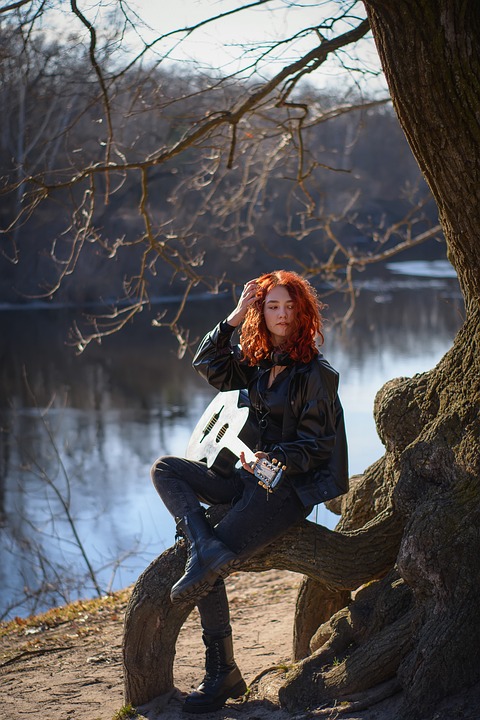In today’s digital age, music creation has become more accessible than ever, and platforms like BandLab are at the forefront of this revolution. Many creators wonder if they can legally sell the music they produce using BandLab sounds. This article delves into the legalities surrounding this topic, providing you with a comprehensive understanding of the rights and restrictions involved.
Understanding BandLab and Its Features
BandLab is a free online music studio offering a plethora of features that allow users to create, collaborate, and share music. It provides a vast library of sounds, loops, and samples that users can incorporate into their projects. The platform is designed for both beginners and seasoned musicians, making music production accessible to everyone.
One of the standout features of BandLab is its cloud-based infrastructure, which allows users to save their projects and collaborate with others in real-time. This makes it an ideal choice for musicians looking to create music on-the-go or those who want to collaborate with friends or fellow artists across the globe.
The Legal Framework Surrounding Music Creation
When it comes to selling music created with BandLab sounds, understanding copyright law is essential. Copyright protects original works of authorship, including music compositions and sound recordings. When you create music, you automatically hold the copyright to that work, but this is where things can get complicated when using samples or loops from platforms like BandLab.
Copyright law can vary from country to country, but generally, any sound or sample that is used in a music track can potentially be copyrighted. This means that if you use a sample that is copyrighted, you may need permission from the copyright holder to sell or distribute your music commercially.
BandLab’s Licensing Agreements
BandLab provides users with a specific licensing agreement that outlines how sounds and samples can be used. According to BandLab’s terms of service, users have the right to create and distribute music that includes sounds from their library. However, there are conditions that you must adhere to.
BandLab grants users a non-exclusive, royalty-free license to use their sounds in your compositions, meaning you can sell your music as long as you comply with their terms. However, it is important to note that you cannot claim ownership of the individual sounds or loops themselves. Instead, you are essentially licensing them for your own creative use.
Using Third-Party Samples and Loops
If you decide to incorporate third-party samples or loops in your music, the legalities become more complex. Not all sounds available on BandLab are free to use commercially. Some might require you to purchase a license or obtain explicit permission from the original creator.
When using third-party sounds, always check the licensing information associated with each sound or sample. Many platforms provide clear guidance regarding commercial use, and adhering to these guidelines will help you avoid potential legal issues.
Creating Original Content with BandLab
The best way to ensure that you can sell your music legally is to create original content. By using BandLab’s sounds as inspiration and building upon them creatively, you can produce unique tracks that you can confidently sell. This involves altering the sounds, combining them in innovative ways, or adding your own recordings to the mix.
By focusing on originality, you not only enhance your creative skills but also safeguard yourself against potential copyright infringement. Be sure to keep records of your creative process, as this can serve as evidence of your original work, should any disputes arise.
Commercial Use vs. Personal Use
It’s vital to distinguish between commercial and personal use of music created with BandLab sounds. Personal use refers to music that is created for enjoyment, sharing with friends, or posting on social media without the intention of making a profit. Commercial use, on the other hand, includes selling music, licensing it for use in films or commercials, or distributing it through streaming platforms.
BandLab allows users to create music for personal use freely. However, if you plan on selling your music, you must ensure that your use of BandLab sounds complies with their licensing agreements. Always review the specific terms under which you can sell your creations to avoid any legal consequences.
Best Practices for Selling Music Created on BandLab
To successfully sell music made with BandLab sounds, adhere to the following best practices:
- Read Licensing Agreements: Always familiarize yourself with BandLab’s terms of service and licensing agreements before selling your music.
- Create Original Content: Use BandLab sounds as a foundation, but add your own elements to ensure your music is unique.
- Keep Documentation: Maintain records of your creative process and any permissions obtained for third-party samples.
- Consult Legal Experts: If you’re uncertain about the legality of selling your music, consider consulting a legal professional who specializes in copyright law.
By following these guidelines, you can confidently navigate the legal landscape of selling music created with BandLab sounds.
Potential Legal Issues and How to Avoid Them
Even with the best intentions, legal issues can arise when selling music created using BandLab sounds. One common problem is not understanding the licensing agreements fully, which can lead to unintentional copyright infringement. If you use sounds that require licensing without obtaining the proper permissions, you may face legal action.
To avoid these pitfalls, always take the time to read the licensing terms associated with the sounds you plan to use. If in doubt, reach out to BandLab’s support team or the rights holder of the sound for clarification. Additionally, consider creating a unique sound palette by recording your own sounds or using royalty-free samples, which can provide you with more freedom in your music’s commercial use.
Conclusion
Selling music created with BandLab sounds can be a lucrative opportunity for aspiring musicians and producers. However, understanding the legal implications is crucial to avoid potential pitfalls. By adhering to BandLab’s licensing agreements, creating original content, and keeping documentation of your creative process, you can navigate the complexities of copyright law with confidence.
Always remember that while BandLab provides a fantastic platform for music creation, the responsibility of ensuring your music is legally sellable rests on your shoulders. By staying informed and following best practices, you can successfully share your music with the world.
FAQs
Can I use BandLab sounds for commercial projects?
Yes, you can use BandLab sounds for commercial projects as long as you adhere to their licensing agreements outlined in their terms of service.
What should I do if I want to use a third-party sample?
If you want to use a third-party sample, make sure to check its licensing information. You may need to purchase a license or get explicit permission from the original creator before using it in your project.
Are there any restrictions on selling music made with BandLab sounds?
While you can sell music made with BandLab sounds, you cannot claim ownership of the individual sounds or loops. You must comply with BandLab’s licensing terms and ensure that you have the rights to any other samples used in your music.
Can I remix BandLab sounds and sell the remix?
Yes, you can remix BandLab sounds and sell the remix, provided that you follow BandLab’s licensing agreements and create a unique composition that does not infringe on the rights of others.
What happens if I violate copyright laws while selling my music?
Violating copyright laws can lead to legal action against you, including fines and the potential for your music to be taken down from platforms where it is sold or streamed. It is important to understand and follow copyright laws to avoid these consequences.

